Your cart is currently empty!
Category: ACORN Canada
-
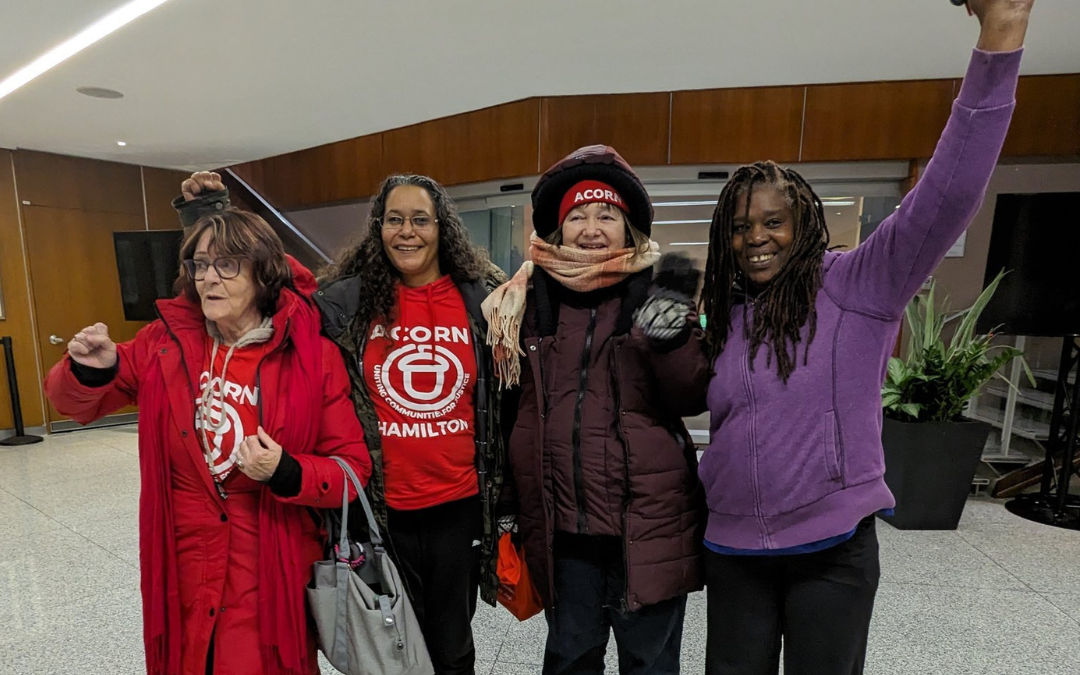
Major Victory for ACORN Hamilton: First Ontario City to Restrict Renovictions
After five years of tireless organizing, ACORN Hamilton had a MAJOR win in January, when the city became the first in Ontario to pass a bylaw to restrict renoviction! ACORN Canada is keeping this incredible momentum going to pass similar legislation in Waterloo and London!
-
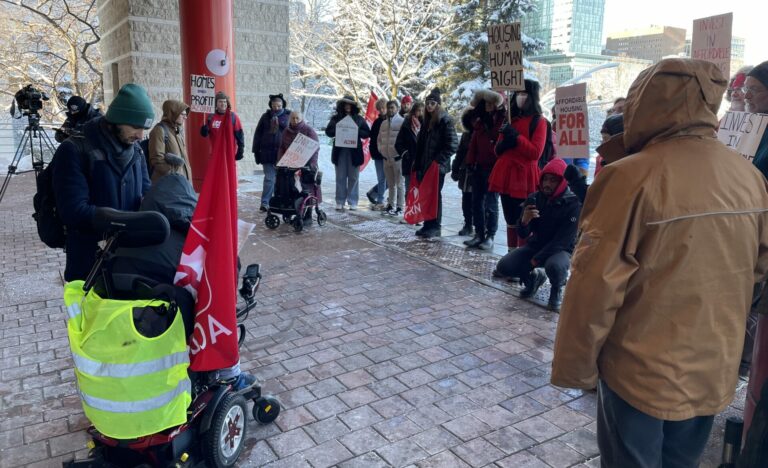
ACORN members rally outside City Hall for $40 million for Affordable Housing amid 2024 City Budget Vote!!
Today, December 6th, over 30 ACORN members braved the frigid cold and rallied outside city hall right before the 2024 Ottawa City Budget vote to demand a significant allocation of $40 million for affordable housing! Co-Chair of the Central Ottawa ACORN Chapter Pascal Kakule was a dynamic force at the forefront of this rally and advocated for the crucial need for city councillors to act now and increase the affordable housing fund in the city budget to finally create some meaningful impact on the lives of Ottawa tenants. Read more here!
-
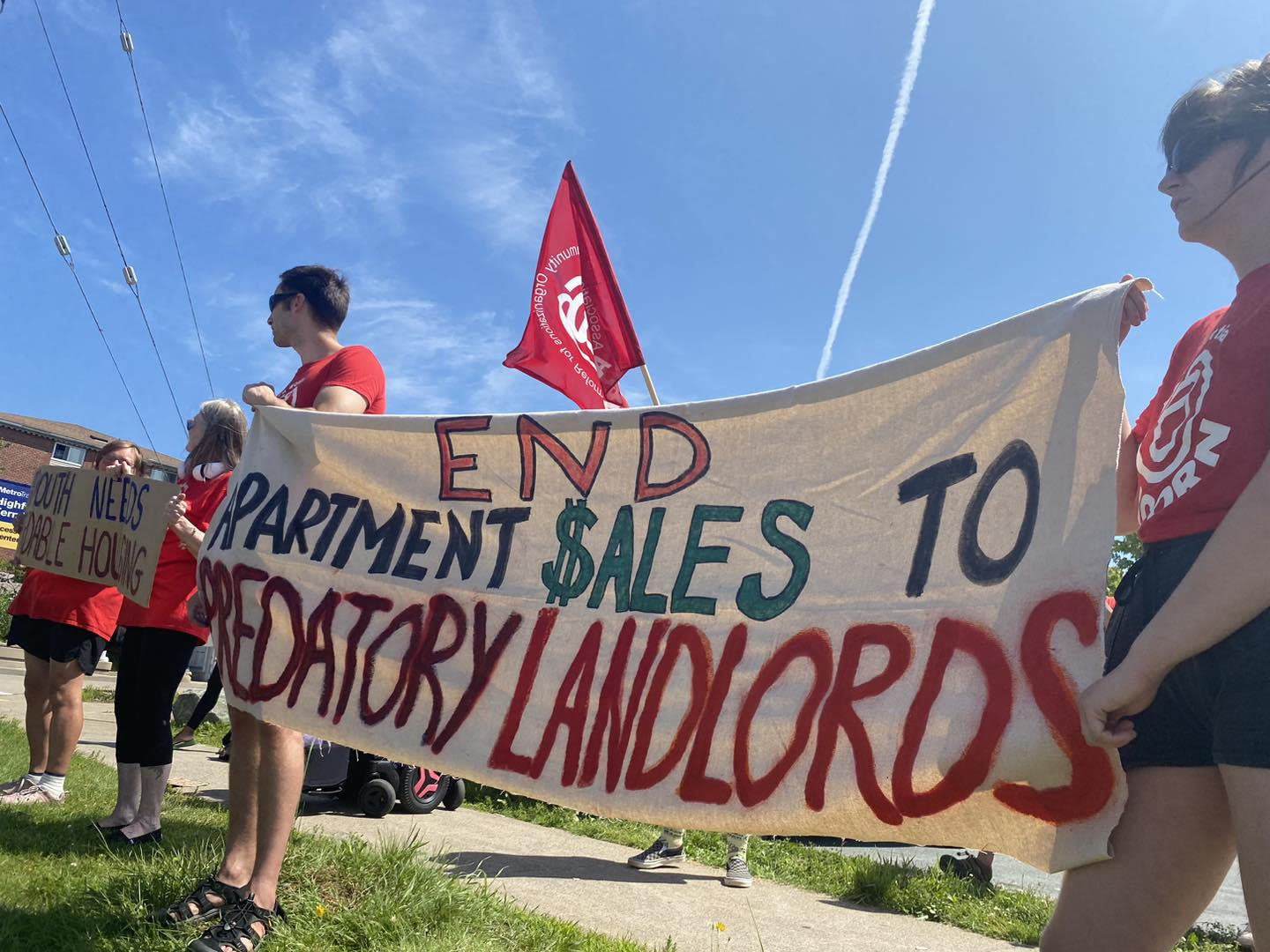
Organizing Works! Manor Village ACORN Tenant Union Wins Fight Against Renoviction!
ACORN Canada took to the streets, organising a national day of action in 9 cities to put an end to sales of apartments to predatory landlords! And Ottawa ACORN are celebrating a massive victory in Manor Village. After 2 years of organising, they were able to force Smart Living Properties to withdraw their eviction notices and allow all tenants to stay in their homes!
-
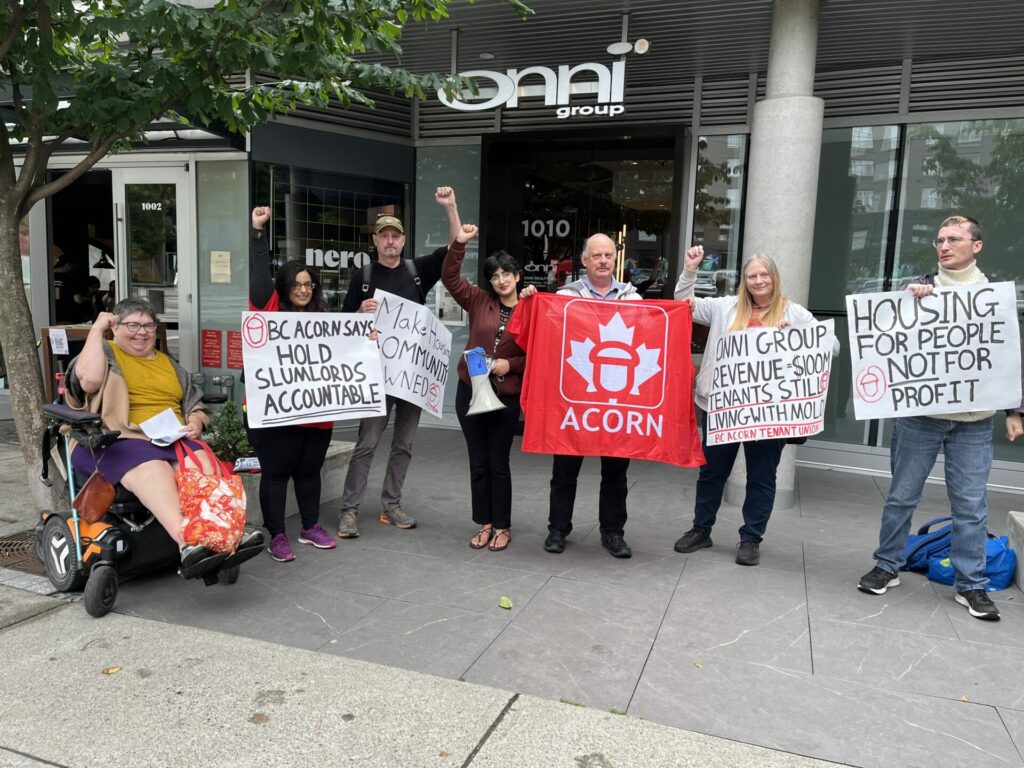
ACORN Canada: Nationwide Actions Call on Federal Government to Promote Community-Owned Housing
On Tuesday, July 25th ACORN held nation-wide actions in 9 cities demanding the federal government to end apartment sales to predatory landlords. At each local action, ACORN highlighted recently purchased buildings where tenants have faced the hard consequences of new corporations taking over Canada’s affordable market rental housing stock. ACORN’s Stop Financialized Landlords campaign is pushing the government to save Canada’s affordable market rental housing by creating ways that rental housing can become community owned on a large scale.
(more…) -
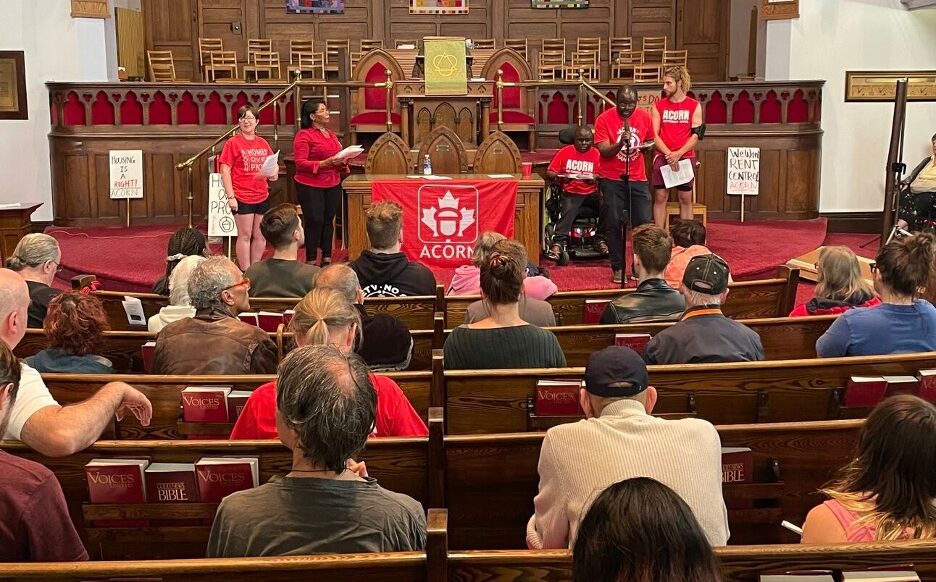
ACORN Canada: Peace and Environment News – Tenant Rights Council Calls for Renoviction By-law
Ottawa ACORN fighting for tenants in the city since 2006
My name is Max Brazier, a member of Ottawa ACORN. I joined ACORN to fight for affordable and livable housing, and help get more students and young people involved in these campaigns. Since joining I’ve been an active part of the Housing Justice Priorities launch, and it’s been inspiring to see so many people come together.
(more…) -
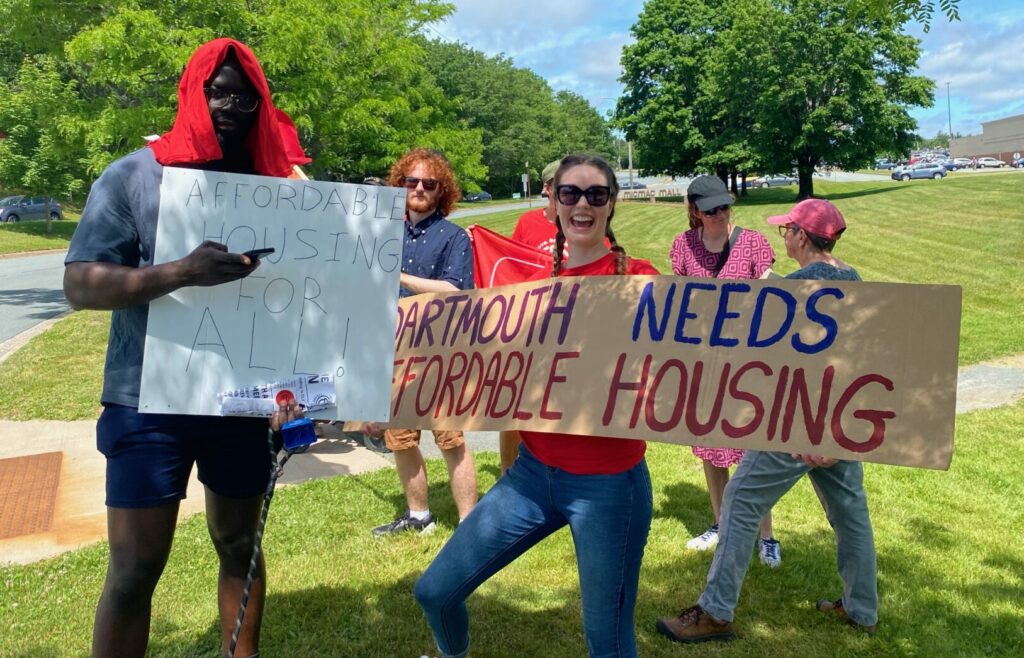
ACORN Canada : NS ACORN holds rally to Fight to Keep Dartmouth Affordable
NS ACORN members from across Halifax, Canada came for a rally at Mic Mac Mall on June 24 to demand affordable housing be included in the M District Future Growth Node redevelopment planned for the area surrounding the mall and is expected to construct several high-rises with over 2000 new residential units and commercial spaces.
(more…) -
ACORN Canada : RTB rules Bye Bye to an ARI in New Westminster!
Tenants at Skyline Towers in New Westminster, British Columbia were happy to see their broken elevators finally being replaced, only to find out that their landlord Bayside Properties intended to have tenants pay for the entire $1,000,000 bill with a rent increase. Under BC Provincial Housing legislation, landlords can now apply to the BC Residential Tenancies Branch (RTB) for an Additional Rent Increase (ARI) to pay for major repairs needed in the building.
(more…) -
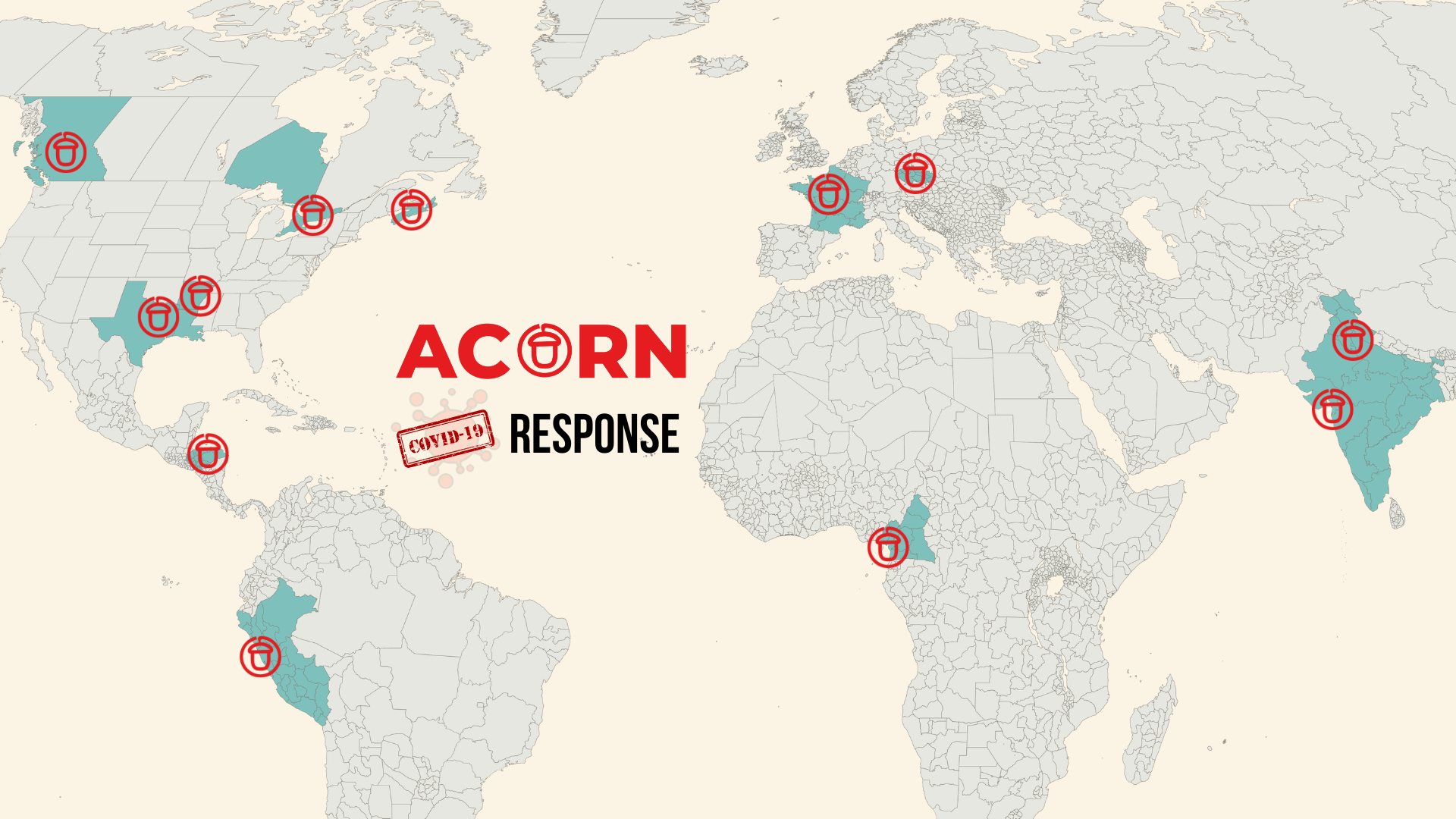
ACORN International’s global response to the COVID-19 Pandemic – Mumbai to British Columbia
At the outset of the now-ongoing COVID-19 global pandemic, over a dozen chapters, branches, and affiliate organizations of ACORN International issued a global call for the social protection of low-income families and individuals.
(more…) -
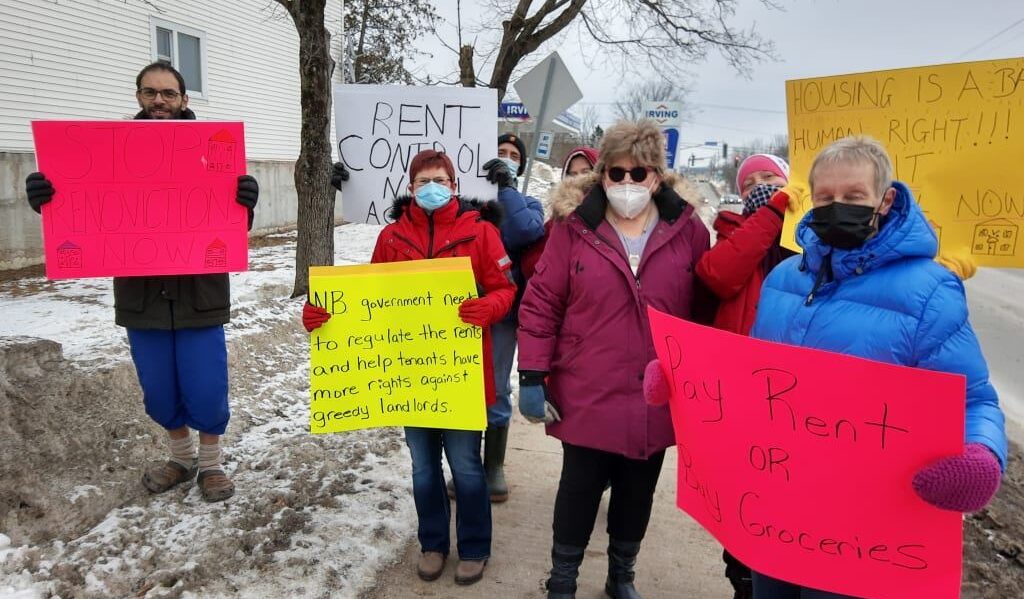
ACORN New Brunswick wins Rent Cap, Eviction Protections
NB Tenants win year-long rent cap and eviction protection
The announcement of temporary 3.8% rent cap and eviction protections for New Brunswick tenants is a result of relentless campaigning by NB ACORN and our allies to end the NB Housing Crisis.
Through organizing tenant power and taking action, NB ACORN has succeeded in forcing the Conservative government to provide a break for tenants from massive rent hikes and a constant fear of losing their home.
Due to ACORN’s efforts, New Brunswick tenants will not receive massive rent increases they cannot afford for at least a year. The new eviction protections mean that it will be far less common for tenants to be forced from their homes for no reason other than the landlord wants them out.
While the rent cap is temporary, and the eviction protections do not appear to be as strong as they should be, both are certainly better than having no protections at all.
Moving forward ACORN will do what it always has done: continue to build tenant power and fight for tenant law reform in NB. Tenants need affordable and healthy housing. Tenants need to be secure in their housing. ACORN will not stop organizing tenant power and fighting for housing justice until we achieve those goals.
-

09/23/21 ACORN Canada Occupied the Nova Scotia Legislature to Demand Permanent Rent Control!
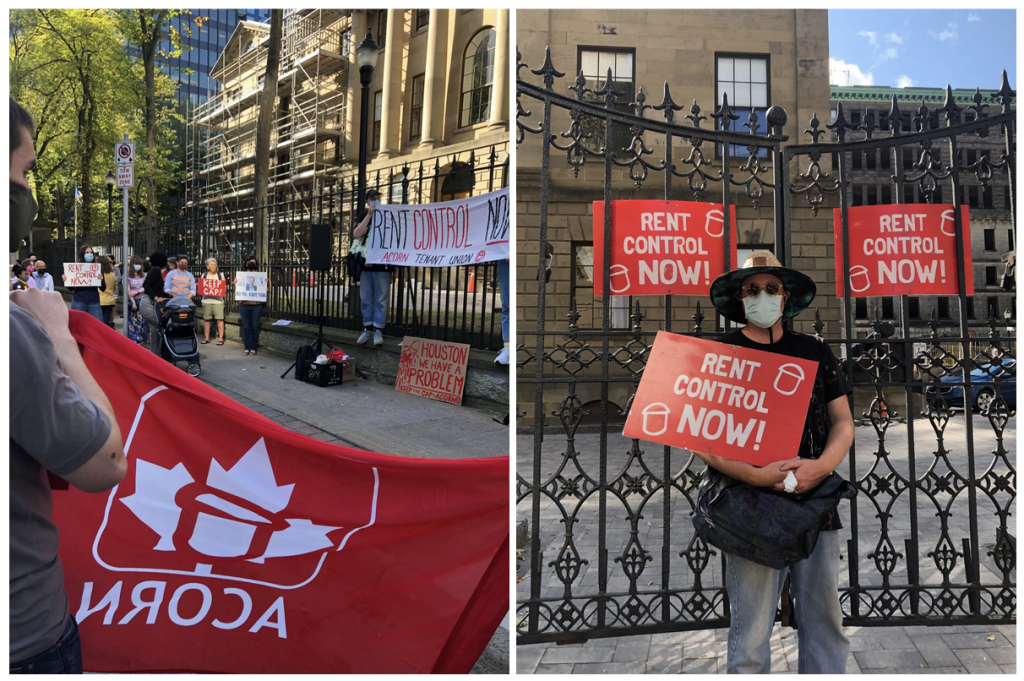
Since winning the temporary 2% rent cap in November 2020 – ACORN has been hearing stories and receiving rent increases from tenants whose landlords intend to raise rents after the cap lifts. Some increases are as high as $2000 extra dollars a month, while most range between $100-500 more. The new PC government has made it clear that they are not interested in protecting tenants from unreasonable rent increases past the state of emergency, so ACORN rallied in front of the legislature to demand they keep the rent cap.
We had 70 people at the initial rally, with 150 people dropping by throughout the day to sit in, tell their stories, and protest the government’s unwillingness to protect tenants. ACORN leaders Janet Niyonkuru, Lina Hamid, Hannah Wood, Sam Hall, Campbell McClintock, Pat Donovan, and Lisa Hayhurst spoke about everything from the discrimination they’ve faced as newcomers finding housing, to affordability, to issues getting repairs done in buildings.
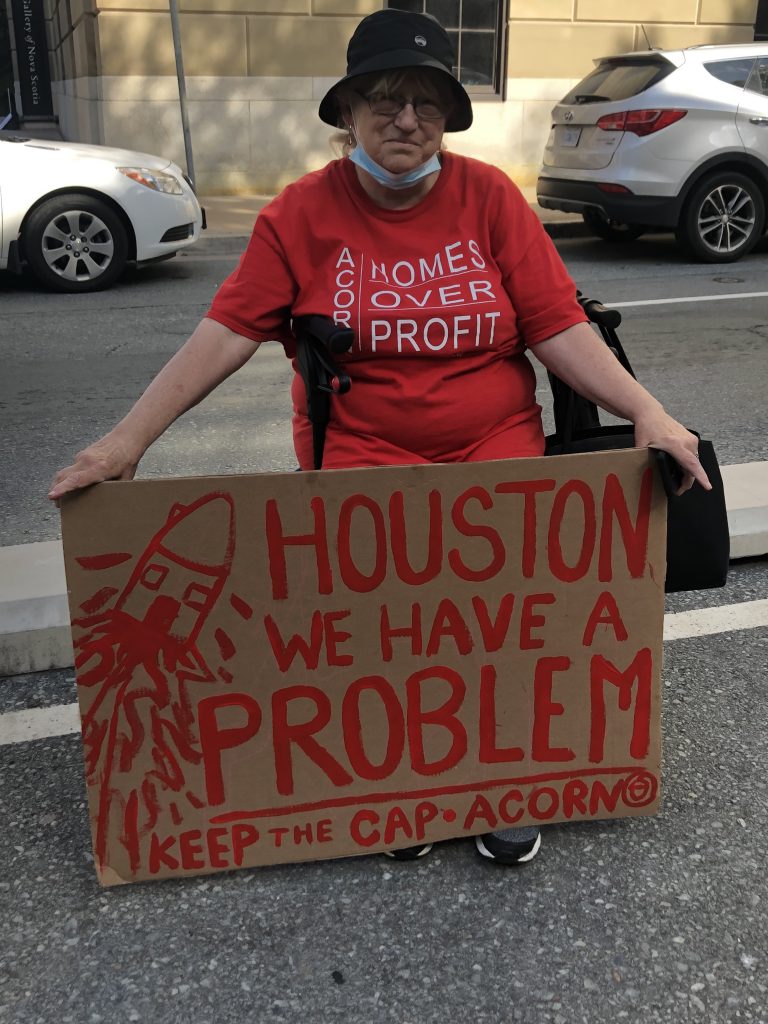
Allied organizations and unions joined to both hold workshops and speak to the crowd. Nan McFadgen VP of the NSFL and President of CUPE, Gary Burrill and Suzy Hansen of the NSNDP, Christine Saulnier of the CCPA-NS, African Nova Scotian social justice and human rights advocate Raymond Sheppard, support workers and clients from the Truro Homeless Outreach Society, Vicky Levack speaking to universal design and accessible housing, Aparna Mohan from the Dalhousie Student Union, and Amanda Sprigs from the This Should Be Housing project. Along with a tenancy Q+A with Dal Legal Aid and food from The Loaded Ladle.
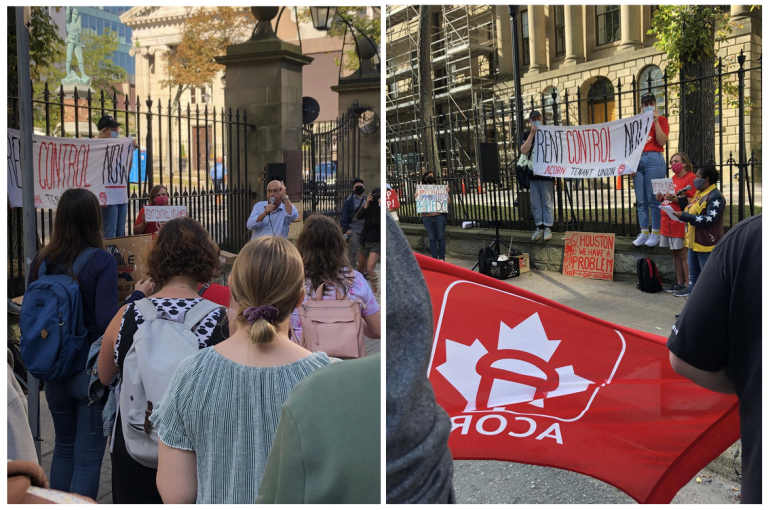
There’s a compilation of news coverage below, and we’ve already forced a response from Premier Tim Houston! Residential Tenancies emailed the night of September 23rd and said the government no longer plans to lift the state of emergency when we go to phase 5, so the rent cap will stay in place for a bit longer. ACORN knows this isn’t enough, and we’re going to fight to make sure the rent cap is permanent!
Stay tuned for upcoming actions. And in the meantime, send an email to the Premier and your MLA here demanding permanent rent control and real action on affordable housing: https://acorncanada.org/take-action/keep-rent-cap
Read More:
NS Advocate: https://acorncanada.org/nova-scotia-advocate-media-release-acorn-rallying-keep-rent-cap
The Chronicle Herald: https://acorncanada.org/saltwire-group-rallying-legislature-fight-continued-cap-rent-increases
CBC: https://acorncanada.org/cbc-news-protesters-ns-legislature-demand-permanent-rent-control
Halifax Today: https://acorncanada.org/halifax-today-thursday-rally-will-call-rent-control-stay-place
The Coast: https://acorncanada.org/coast-acorn-rally-calls-government-extend-rent-control
CTV: https://acorncanada.org/ctv-news-rent-control-rally-held-halifax
